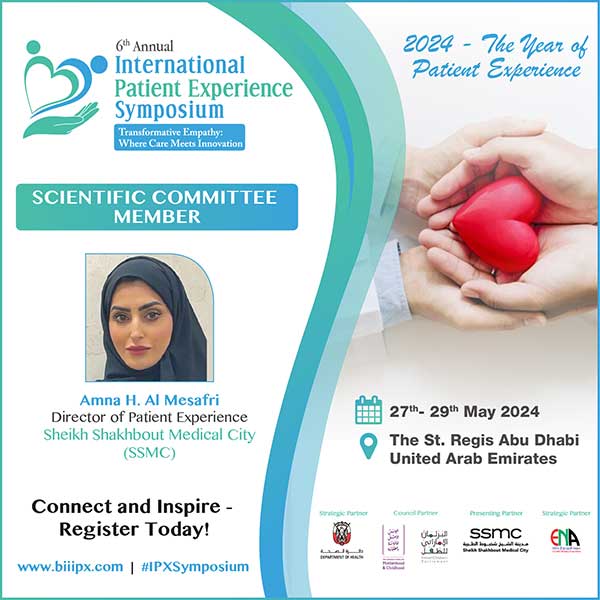1. How do you perceive the significance of 2024 as “The Year of Patient Experience,” and what key developments do you foresee in the realm of patient-centered care?
I perceive 2024 as ‘The Year of Patient Experience’ as a key moment for health systems worldwide to re-evaluate and enhance their engagement with patient-centered care. This year, I anticipate the acceleration of digital health tools that increase patient involvement in their care processes, such as through personalized health apps and patient portals that provide real-time health data access. Another key development could be the implementation of AI-driven analytics to tailor care plans to individual patient needs, thereby improving outcomes and patient satisfaction.
2. As we delve into the theme “Transformative Empathy: Where Care Meets Innovation,” how do you envision empathy driving innovation in healthcare practices to enhance the patient experience?
Empathy, at its core, is about understanding and sharing the feelings of others. In healthcare, transformative empathy can drive innovation by leading to the development of technologies and practices that more closely align with the actual needs and experiences of patients. For example, by using virtual reality simulations, medical professionals can experience the challenges faced by patients with specific health conditions, leading to more empathetic and personalized care solutions.
3. Could you share insights into how bridging health and social aspects contributes to achieving better patient outcomes, aligning with the symposium’s theme?
Bridging health and social aspects is essential for holistic patient care, which not only looks at treating the disease but also at improving the overall well-being of the individual. Social determinants of health—like socio-economic status, education, and community support—significantly influence health outcomes. Integrative approaches that include social services, community education, and patient support groups can enhance treatment effectiveness and patient resilience, thus aligning with our symposium’s theme.
4. What specific challenges do healthcare providers face in integrating transformative empathy into their practices, and what strategies do you recommend to overcome these obstacles?
Integrating transformative empathy into healthcare practices presents several challenges, including cultural barriers within medical institutions and a lack of training in empathetic communication. Strategies to overcome these obstacles may include incorporating empathy training into medical education, promoting a culture of listening and patient engagement in health settings, and implementing feedback systems where patients can regularly share their experiences and suggestions for improvements.
5. In your opinion, how can interdisciplinary collaboration among healthcare professionals, technologists, and patient advocates foster a culture of empathy-driven innovation, ultimately shaping the future of patient care?
Interdisciplinary collaboration among healthcare professionals, technologists, and patient advocates can foster a culture of empathy-driven innovation by pooling diverse expertise and perspectives. This approach can lead to the development of more comprehensive care models that incorporate cutting-edge technologies with patient-centric strategies. Such collaboration can also drive the creation of policies that support sustainable, empathetic practices in healthcare environments.
6. How do you think participants will benefit by attending 6th Annual International Patient Experience Symposium?
Participants attending the 6th Annual International Patient Experience Symposium will gain invaluable insights into the latest advancements and innovative practices in patient-centered care. They will have the opportunity to network with thought leaders and peers from diverse healthcare backgrounds, share best practices, and explore new tools and technologies designed to enhance the patient experience. Ultimately, this symposium will equip attendees with knowledge and strategies to implement transformative empathy in their own practices, significantly impacting the future of patient care.


